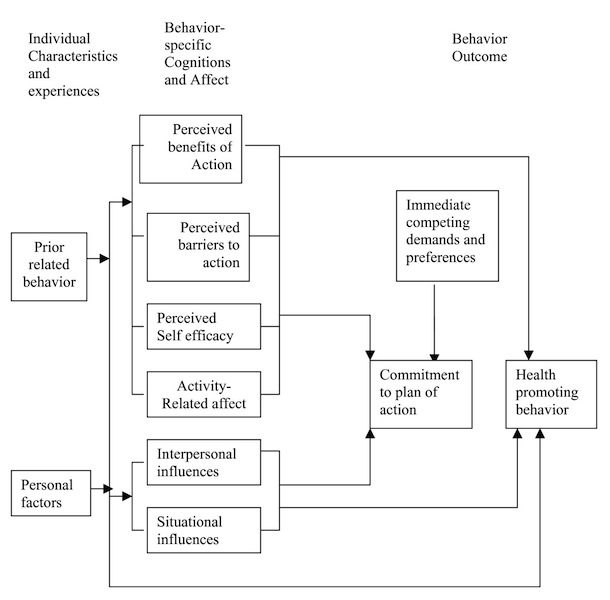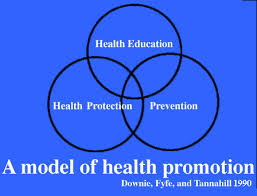Analysis and Application
Effective prevention of chronic kidney disease (CKD), clearly, requires different approaches to lessen the number of deaths in the world. Health promotion deals with empowerment of people to make healthy lifestyle selections, as well as encourage them to become better self-supervisors (Raingruber, n.d.). Before discussing the health promotion model, it is vital to conceptualize the frameworks of the health promotion model as indicated in the figure below.

The health promotion concept requires people to have ways of comprehending and interpreting occurrences. The approach enables people to have full control over the contributing factors of health. As a rejoinder, the health promotion theory helps in this idea by presenting a systematic method of understanding procedures; the theory has different concepts of the events that demonstrate the association and correlation between the variables (Parker, Baldwin, Israel, & Salinas, 2004).
Markedly, the theory notes that people’s proficiencies influence their actions. For this reason, promotion a healthy behavior is the expected result in this concept. Even though scholars and students have clear objectives for learning ways of devising and implementing health promotion interventions, the concept of health promotion remains unclear – not straightforward. An empowered society is likely to minimize chronic kidney disease infections, as they will put into practice the required intervention measures.

Health practitioners can use the theory to help people understand the nature of CKD. Since the theory helps in understanding the motivations and wants of the target population, it can give practical suggestions on how to change health-related conducts. In addition, the theory can inform the target population of the measures to apply in monitoring and evaluating health promotion concepts. With social-economic determinants having great influence on the occurrence of this complication, it is important to understand the social structure of different people for proper intervention measures (Poland, Green, & Rootman, 2000). For instance, the nature of social environment and structures can affect the eating habits of people.
Understanding the chronic kidney disease requires complete involvement of communities and individuals. Although the current community is quite dynamic, it is easier to provide multi-level intervention programs than single-track programs. An intervention program touching on a community based on the eating habits will clearly limit the amount of sugar intake among the population. In addition, the communal approach will enable the entire community to engage in an activity like workout to keep fit, as well as reduce instances of cardiovascular diseases. Different models illustrate how environmental structures like occupational, educational, recreational, and health shape human behavior and well-being (What Is the Health Promotion Model? – Definition & Theory, 2014).
Intervention Plan
A proper intervention for the dynamic society involves educating them on the importance of maintaining healthy eating habits. The target audience in this intervention plan is the American Community. The population should avoid foods with a lot of cholesterol and stop eating junk foods like hamburger and chips. This intervention prevents development of conditions like high blood pressure and obesity. These complications always provide room for the set in of CKD.
Definitely, this intervention plan will limit the number of occurrences in the American population. Given the strong relationship between CKD and diabetes, the need for a lively empowerment program as elaborated in the health promotion theory remains indispensable. This plan is appropriate for the identified role given that self-driven actions are easily rooted in the behaviors of the target population. From this approach, the highlighted numbers of new cases of CKD are likely to go down tremendously.
References
Parker, E. A., Baldwin, G. T., Israel, B., & Salinas, M. A. (2004). Application of Health Promotion Theories and Models for Environmental Health. Health Education & Behavior, 31(4), 491-509.
Poland, B. D., Green, L. W., & Rootman, I. (2000). Settings for health promotion: Linking theory and practice. Thousand Oaks, CA: Sage Publications.
Raingruber, B. (n.d.). Health Promotion Theories. Web.
What Is the Health Promotion Model? – Definition & Theory. (2014). Web.